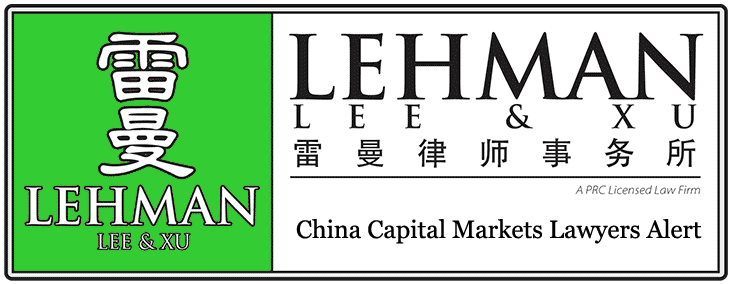

 |
|
LEHMAN, LEE & XU China Lawyers
|
|
China Capital Markets law In The News
|
|
Jan. 15, 2016
|
The China Law News keeps you on top of business, economic and political events in the China. |
|
|
|
In the News |
China cracks down on forex market |
Chinese authorities are starting to police the nation’s foreign-exchange market in a way currency traders have rarely seen before, levying penalty payments for aggressive trading and prompting some banks to turn down business. With the nation’s growth at its weakest in 25 years and the currency heading for a record fall this year, China is aiming to stem the capital outflows, which can be exacerbated by a widening gap between onshore and offshore exchange rates for the yuan. “China is essentially trying to close that gap and it’s much more difficult to do that if you have these outsiders coming in and taking advantage of the arbitrage,” Hong Kong-based Genesis Capital Investment Ltd (聯和運通投資) fund manager Jimmy Weng said. China-based forex market sources said Beijing had turned up the pressure over the past few months following guidelines released in September to strengthen regulation of the market and make forex trades more expensive. The person’s own bank had shut down buy-side forex trades. “It’s possible that the foreign banks did everything right, that they put aside the 20 percent reserve, that they met the ‘know-your-client’ requirements, but are still trading aggressively, which is clearly against what China wants,” the person said. “We used to make so much money from arbitrage — easy money you know? Now, none,” the person said. The latest move comes just three months after the People’s Bank of China (PBOC) ordered banks to scrutinize clients’ foreign-exchange transactions to prevent illicit cross-border currency arbitrage between the offshore and onshore yuan. On Wednesday, China’s foreign-exchange regulator also said it would improve its reserve position and contingency plans to curb risks from abnormal cross-border capital flows. “The main purpose is to crack down on excessive currency speculation and arbitrage, which may hurt the economy,” a senior economist at a think tank linked to China’s Cabinet said. “They are worried about falling FX reserves. The yuan faces obvious depreciation pressure as the [US] Fed [Federal Reserve] may continue to raise interest rates, so policymakers are concerned and intend to take effective measures to respond,” the economist said. A source at one of the affected banks said the PBOC asked them to disclose the names of their foreign-exchange clients buying spot and instructed any state-owned enterprises among them to stop trading. “The PBOC is robbing us. They’re not being reasonable; even if we comply with everything, we provide all the documents, our spot volume is too large,” the person said. The offshore yuan, which is freely traded overseas, touched a five-year low on Wednesday before erasing losses on speculation the government was intervening to support the currency. It was trading at 6.5696 yuan to the US dollar in Hong Kong late yesterday, leaving it about 1.2 percent cheaper than the rate in Shanghai. http://www.taipeitimes.com/News/biz/archives/2016/01/01/2003636129 |
|
|
|
|
| Proud Member of |